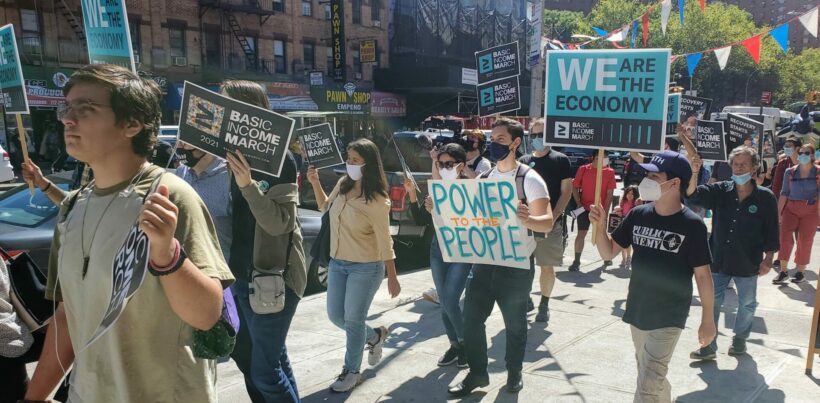On May 2, 11,500 film and TV writers belonging to the Writers Guild of America went on strike. The Guild, founded in 1933, is the labor union representing thousands of writers who create TV series, film scripts, news programs, and other content. On the other side of the negotiating table is the Alliance of Motion Picture and Television Producers (AMPTP), the entertainment industry’s official collective bargaining representative, which represents eight major studios: Amazon, Apple, Disney, Warner Bros. Discovery, NBC Universal, Netflix, Paramount Pictures, and Sony (CBS News and Paramount+ are owned by Paramount). The writers are demanding higher pay and a stable pay structure, as well as fairer deals and provisions about artificial intelligence.
Over the last few years, a new wave of labor organizing has sprouted across the country. While union activity by workers at Starbucks and Amazon grabbed national attention, even the lesser-known campaigns carried out by American Airlines and Southwest Airlines pilots, hospital nurses, and university employees showed labor flexing its muscle in ways we have not seen for a while.
Despite these efforts, however, worker compensation is still not catching up with inflation, and most workers are in effect losing income year after year as the cost of living rises. The Economic Policy Institute issued a report in 2019 with the title “CEO compensation has grown 940% since 1978” and the subtitle “Typical worker compensation has risen only 12% during that time.” The concentration of capital in the hands of a few is developing faster than any effort by labor to distribute that wealth into the hands of workers. This puts into question the current union organizing strategy. Is fighting for wage increases really a long-term solution? Why are workers not negotiating instead for a share of corporate earnings and demanding worker representation in the boardroom?
The conversation should move past wage growth and address wealth inequity. A Credit Suisse – Global Wealth Report, published on Feb 2023: The sad reality of global wealth around the world can, essentially, be presented as a pyramid. At the top, we have the 1.2% (62.5 million people) of the world’s population holding 47.8% of all global wealth—$221.7 trillion dollars. Then, 11.8% of the population (627 million people) controls 38.1% of the planet’s wealth. The third level includes 33.8% of the population, which hold 13%, or $60.4 trillion. Finally, 53.2% of the population (2.8 billion) holds $5 trillion, just 1.1%. Note that half of the entire population has a net worth lower than $10,000.






